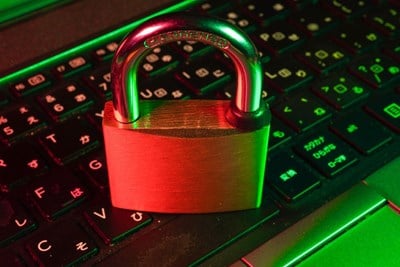In the digital age, the safety of your business starts with a solid foundation, and you can't have a solid foundation without taking the proper precautions. Security and event management solutions will protect your business or organization at every level, keeping you one step ahead of every threat to your company - which can occur from anywhere in the world. In this guide, we'll address common questions related to these critical components of modern business operations.
What is SIEM?
SIEM stands for Security Information and Event Management. It refers to a category of software and technology solutions designed to provide comprehensive cybersecurity monitoring, threat detection, and incident response capabilities for organizations. SIEM software collects and analyzes data from various sources within an organization's IT infrastructure to identify and respond to security incidents.
Key features and functions of SIEM software include:
-
Log Management: SIEM solutions collect and store logs and event data from various sources such as network devices, servers, applications, and security appliances.
-
Correlation and Analysis: SIEM software uses advanced analytics and correlation rules to analyze the collected data in real-time. It looks for patterns, anomalies, and potential security threats.
-
Alerting and Notification: When suspicious or malicious activities are detected, SIEM systems generate alerts and notifications to security personnel or administrators. These alerts help in rapid response to security incidents.
-
Incident Response: SIEM tools often provide incident response capabilities, allowing security teams to investigate and mitigate security incidents more effectively.
-
User and Entity Behavior Analytics (UEBA): Some SIEM solutions incorporate UEBA to monitor and detect abnormal behavior patterns among users and entities, helping to identify insider threats.
-
Compliance Reporting: SIEM software can assist organizations in meeting regulatory compliance requirements by generating reports and logs that demonstrate adherence to security policies and regulations.
-
Integration: SIEM solutions often integrate with other security tools and technologies, such as intrusion detection systems (IDS), firewalls, and antivirus software, to provide a holistic security posture.
-
Data Retention and Archiving: SIEM systems typically store historical data for forensic analysis and compliance purposes.
What are Some Popular SIEM Vendors?
Popular SIEM software vendors include Splunk, IBM QRadar, LogRhythm, McAfee Enterprise Security Manager , and Elastic SIEM. Organizations often choose SIEM solutions based on their specific needs, budget, and existing IT infrastructure.
How Does SIEM Help Companies?
SIEM software plays a crucial role in enhancing an organization's cybersecurity posture by providing visibility into the security events and incidents occurring within the network. It helps organizations detect and respond to security threats more effectively, ultimately reducing the risk of data breaches and other cyberattacks.
What Types of Data Do SIEMS Collect and Analyze?
SEMS collect and analyze various types of data, including log files, network traffic data, user behavior data, system configuration data, and application data. This data helps SEMS identify anomalies and patterns indicative of security incidents.
How Does SIEMS Help in Threat Detection?
SEMS use sophisticated algorithms and correlation rules to detect suspicious patterns and anomalies within the collected data. They can identify unauthorized access attempts, malware infections, unusual user behavior, and other potential security threats.
Can SIEMS integrate with other security tools?
Yes, SEMS often integrate with a wide range of security tools such as firewalls, antivirus software, intrusion detection systems, and identity and access management solutions to enhance overall security posture.
Security and Event Management Solutions play a pivotal role in safeguarding organizations against ever-evolving cybersecurity threats. By proactively monitoring, analyzing, and responding to security events and incidents, SEMS ensure that businesses can operate securely and with confidence in the digital age. If you have more specific questions or require further guidance, don't hesitate to reach out to a security and event management solution provider.



